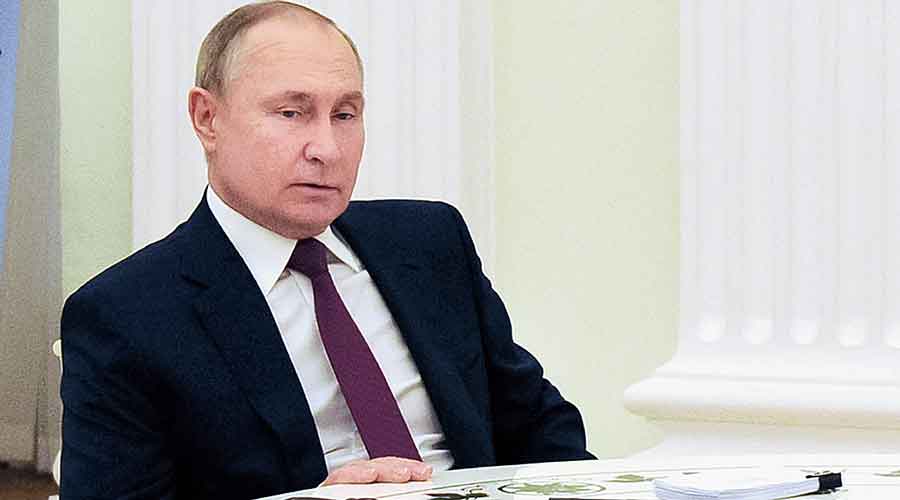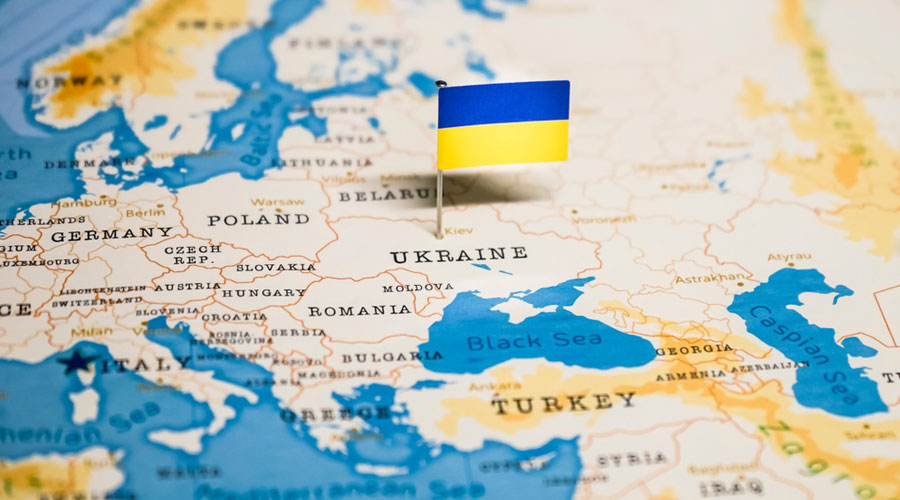In February 1990, Mikhail Gorbachev and the US secretary of state met for talks on Germany’s future.
During hours of discussion in Moscow, James Baker promised Gorbachev through his interpreter, Pavel Palazhchenko, that if US troops remained in Germany after reunification, Nato would not expand “an inch to the east”.
Three decades later Russian President Vladimir Putin is using the apparent breach of this promise to repeatedly accuse Nato of deliberate deception. “We were given promises that Nato infrastructure would not advance a single inch to the east,” Putin said this month. “But they conned us. They simply cheated us.”
The question of eastward expansion of Nato is at the centre of the ongoing crisis over Ukraine. Putin is pressing security demands, including a block on Ukraine ever joining Nato. Nato has said that, under UN treaties, every nation is free to choose its alliances.
It is true that since those talks in 1990, Nato has almost doubled to include 30 member states, including former Warsaw Pact countries or Soviet republics.
However, Palazhchenko, says that Baker’s comment was related exclusively to Nato expansion into the territory of East Germany, rather than countries in central or eastern Europe.
“Baker said that (a united Germany) should become a member of Nato, but that Nato infrastructure should not move and extend to the territory of the GDR (East Germany),” Palazhchenko said. “But certainly no promise was made as regards Poland, Czechoslovakia, Hungary, etc. Such a promise could not be made because no one, including the leaders of those countries, raised the possibility of them becoming members of Nato.”
Palazhchenko added: “I was there, I recorded that conversation. That is what was discussed. Of course, people for their own political purposes take that particular phrase out of context and they make their political points. But so far as I’m concerned that concerned only the territory of the GDR.”
Although Gorbachev, 90, has criticised the US for exploiting Russia’s “weakness” after the collapse of the Soviet Union, he has also said that the topic of Nato expansion was not discussed in 1990. Yet, apart from Baker, other western leaders also gave Russia more explicit assurances. None of them, however, was ever formally recorded in treaties.
In March 1991, John Major, the British Prime Minister, told Moscow that he did not foresee “circumstances now or in the future where east European countries would become members of Nato”. Douglas Hurd, his foreign secretary, went even further, saying that there were “no plans in Nato to include the countries of eastern and central Europe in Nato in one form or another”.
Palazhchenko says Moscow trusted that these and other verbal pledges by western officials would be respected and that Nato’s subsequent expansion violated the “spirit” of the treaty on German reunification that was signed with Moscow in 1990.
“It is easy to imagine how the West would have reacted if the positions had been reversed. The Russians were entitled to take seriously the repeated high-level assurances they were given. I wouldn’t put it in terms of betrayal but Russia had expectations that evolved over time. It believed that the agreement and the pledge of non-enlargement by Nato to the territory of the GDR logically and by extension also referred to the territory of other countries in central and eastern Europe.”
When he first came to power, Putin’s view of Nato was initially benign and he even suggested that Russia could one day join the western military alliance. “It is with difficulty that I imagine Nato as an enemy,” he said in 2000, in a comment that provoked criticism from hardliners in Moscow.
By 2007, however, after two waves of Nato expansion, Putin’s stance had hardened. Speaking at an international security conference in Munich, he criticised the alliance, saying: “What happened to the assurances our western partners made after the dissolution of the Warsaw Pact?”
Now, with Nato missile shields in Poland and Romania that Moscow says can easily and quickly be loaded with Tomahawk cruise missiles, making them an offensive, rather than a defensive weapon, Putin is portraying the topic of Nato expansion as a threat to Russia’s very existence.
Palazhchenko, who helps to run the Gorbachev Foundation, a think-tank in Moscow, hopes that the standoff over Ukraine can be averted without military conflict.
“I think that some kind of common sense will ultimately prevail, but the cost of this conflict and the cost of this current aggravation will inevitably be very high on both sides,” he said. “And as a Russian, I’m afraid it will be higher on the Russian side.”
Additional reporting from Reuters












